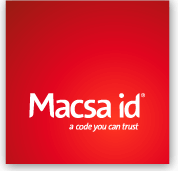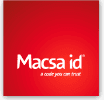Blockchain technology in supply chain traceability
In the current digital transformation process, one of the main strategic priorities of companies is the adoption of blockchain technology in their businesses.
Blockchain is a technology that enables a secure, synchronized, decentralized and distributed record of digital transactions, without the need for third-party mediation.
Each of the data blocks is protected and linked to each other, which enables the participation of a certain number of users associated with each block. In this way, the transaction is not verified by a third party, but rather via the network of nodes, which in turn authorizes any update to the blockchain.
On the basis that this technology fulfills the function of recording, preserving and protecting the information of all types of digital operation, many sectors have shown great interest in incorporating this technology into their industrial operations.
This is the case for supply chains, namely the set of activities, facilities and services required for the sale of products. This covers the complete process, from origin (the supply of raw materials) and transformation (in the manufacturing process), all the way to the finishing stages (distribution and delivery to the final consumer).
Incorporating blockchain technology in their business, supply chains seek to improve their traceability procedures in order to optimize the quality and safety of their internal processes, minimize costs, save time, be more competitive and enrich the customer experience by providing qualitative information about their products.
This last aspect is especially relevant, since modern consumers want to know more information about their purchases. This includes the origins, procurement systems, social and environmental impact, etc. Traceability systems make it possible to obtain such history faithfully throughout the activity of supply chains.
¿Would you like more information about Macsa ID’s solution?
Table of contents
- Blockchain and supply chains
- Improving the flow and quality of information
- The benefits of blockchain in supply chains
- Resources and management with blockchain
- The experience of a market leader in traceability solutions
Blockchain technology in supply chain traceability:
Different sector studies agree that the traceability of industrial goods throughout the process of supply chains will be one of the applications having a greater impact in the short and medium term when it comes to Industry 4.0.
In fact, there are already different projects seeking to advance the implementation of blockchain technology in companies. This is the case of Linux Foundation Hyperledger, an open source initiative launched in 2016 which, among others, has Daimler or Airbus as prominent partners.
Another example is the MOBI (Mobility Open Blockchain Initiative) alliance launched in 2018, to experiment with different use cases in the automotive sector. Among its participants are leading brands such as BMW, Ford, Honda and General Motors. One of the uses they are experimenting with is traceability in their supply chains, which are especially complex due to the unique serialization of many of their components.
Other examples of the use of blockchain technology in supply chains include: PepsiCo, which uses blockchain to track its material requirements plan; the Walmart department store chain, using IBM’s Blockchain Food Trust System to track its meat products; and Danone, with its “Track & Connect” service. Nestlé and Unilever are also using blockchain in similar applications.
The food sector is in fact leading the industry in the application of blockchain according to the consulting firm ARC Advisory Group which, in a recent paper, has identified 37 blockchain industry committees to analyze testing or production programs, 10 of which are in the food industry. This position seems justified by the complexity of their supply chains.
Improving the flow and quality of information
These two aspects (information flow and quality) of supply chains have been under development for years.
For Tecnalia Research & Innovation, traceability systems based on traditional or centralized architectures, incorporated long ago in the supply chains of large industrial corporations, have not been widely accepted. Many systems continue to exist only because they are linked to mandatory regulations.
For the applied research and technological development center (an important example in Europe) mentioned above, these traditional or centralized architectures created certain misgivings about supply chain information and its value chain, since they did not fully guarantee the sovereignty and protection of industrial data.
For Tecnalia Research & Innovation: “blockchain technology makes it possible to eliminate all these barriers through a distributed architecture where there is no ‘binder’ of the contents. In addition, this ensures the visibility and use of the data (guaranteeing the sovereignty of industrial data) by ‘contract’ and cryptography, and above all, making every participant in the network equal”.
Thanks to the traceability of industrial goods with blockchain technology, participants in an industrial supply chain, who “yearn to have visibility of the destination and use of their components, can analyze the impact of any small change in the design/composition of their product, avoid fraud in the certification of origin of raw materials and even anticipate changes in consumer habits and trends with this information”.
For the experts at Tecnalia Research & Innovation “an important issue in these projects is to maximize and automate the capture of information/data as far as possible, which is why the IIoT (Industrial Internet of Things) is considered the principal data source that is added to the traceability chain in industrial projects. Moreover, this information will be signed by means of cryptographic hardware in these IIoT devices, which would make extraordinary data reliability”.
The benefits of blockchain for supply chain
Modern consumers are increasingly demanding and concepts such as sustainability, safety or information related to the product and its origin can affect the final purchase decision.
All these market demands are logically transferred to supply chains that have to provide conclusive and verifiable answers to these new demands.
In this context, blockchain technology provides improved traceability and security in all transactions, by recording all the movements and states which the goods pass through, in real time and in an encrypted manner, without the possibility of modifying or faking this information.
In addition, there are other benefits of the application of this technology that can be highlighted in this area:
- Reduction in development costs
- Logistics system efficiency improvements
- Increased efficiency and processing speed
- Planning of production processes
- Automation of tasks
- Quality control and quality assurance
- Savings in time and administrative costs
- Reduced transit and shipping times
- Low-cost technology
- Error elimination
- Brand protection against counterfeiting
- Creation of self-managed user communities linked by common standards
- Reliability and integrity of shared information
- Transparency
- Improved brand image by increasing consumer confidence
- Customer satisfaction
As an example of some of these advantages, the impact on reducing transit and shipping times is significant. Currently, an international shipment of goods undergoes an average of 30 different inspections en route, which are still mostly based on manual verification of paper documents. If one or more documents are missing, the shipment will be stopped at the inspection site, which entails consequent economic damage to the company. Via the use of blockchain technology, it is possible to simplify these procedures and eliminate all these potential hinderences.
Resources and management with blockchain
All these advantages are progressively driving blockchain technology forward in the management of traceability in supply chains, as it is helping to overcome the limitations that occur in the data flow of each phase of the manufacturing process, as well as the limitations that this entails in the overview of the whole process.
It is a new alternative to the most widely used technological resources, some of which have been used for years and others only more recently. Some examples are alphanumeric codes, barcodes and Radio Frequency Identification (RFID) technology.
In addition to blockchain, one of the latest technological trends used in traceability systems are beacons; a very useful tool for positioning people and objects (machinery, product, etc.) in various industrial environments.
These location systems, based on short-range, low-energy Bluetooth, are used for example in the logistics sector beyond the space within companies, as they can be extended to the transport of pallets during transit in the freight system.
Would you like to have a personalized consultation?
The experience of a market leader in traceability solutions
Macsa ID is recognized as a market leader in technological innovation for coding, identification and traceability solutions.
The company invests more than 10% of its turnover in R&D each year to research and develop new hardware and software technology that adapts to the changing needs of its customers and their markets.
These technologies, in the specific field of traceability, aim to ensure the integrity of customer supply chains, offering them innovative solutions that enable the development of Industry 4.0.
One of these solutions is the Integra Serialization software for individualized supply chain traceability. This application provides each product with a unique serial number, which can be authenticated at one or more points in the supply chain.
In addition to its traceability solutions in the industrial field, blockchain technology is also present at Macsa ID in the social field. In 2019, our company joined up with the Fernando Pombo Foundation, along with large companies from different sectors. They were the first to issue tokens with blockchain technology made by a law firm in Spain for the promotion of various charity projects.
This new model of fundraising allows, in addition to providing greater transparency and traceability, donors to be involved in the decisions on the destination of their funds and streamline the flows that, in terms of social responsibility, are transferred from companies to society.
At Macsa ID we will be happy to find the marking, coding and traceability solution that best suits your needs.






